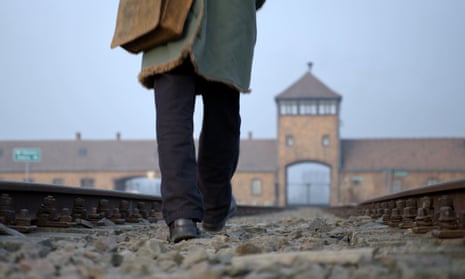Here is an epic documentary investigation from director David Nicholas Wilkinson into something that could be called the great unpunishment: after the second world war, though many chief perpetrators of the Nazi Holocaust were convicted, the vast majority went free. The American prosecutor Benjamin Ferencz reflects on the fact the number of Nuremberg defendants was effectively limited by the courtroom’s size.
This was not merely a matter of minor camp guards or low-ranking officers, but serious politicians, civil servants and public figures. There was postwar exhaustion; collaborators all over Europe did not care to rake the subject up. With the cold war, the real enemy was felt to be the Soviet Union and a leniently treated and rehabilitated Germany (though divided) was needed as a bulwark against the communists. (Wilkinson doesn’t reflect on the point, but the establishment of the state of Israel was perhaps treated by many as an alibi for inaction.) Later, there was also a persistent ruling-class distaste for the Nazi hunters in the 1980s and 90s: Wilkinson and Philip Rubenstein, former director of the All-Party Parliamentary War Crimes Group, read aloud some very unfortunate leading articles from the Times and the Telegraph on this theme, unsubtly contrasting supposed Old Testament vengefulness with New Testament compassion.
But now that the cold war has been over for three decades, we can reflect on this buried scandal: tens of thousands of Nazi war criminals have been living under fake names in exile, or brazenly under their own names, some in Britain (and Germany or Austria) and many reaching a ripe old age. Horror at the Holocaust has for over seven decades been an article of faith underpinning our belief in the just war, yet it has coexisted with a lack of will to prosecute the culprits. There are many interviewees here, many grim visits to memorials all over Europe and eerily blank forests and fields, and powerful contributions from survivors and survivor descendants, including Robin Lustig and Kitty Hart-Moxon.
Wilkinson arguably missed a trick by not interviewing Daniel Jonah Goldhagen, a very substantial scholar of this subject, but there is a brilliant contribution from Professor Mary Fulbrook from UCL, who talks about the chilling “renazification” phenomenon in 1950s West Germany, which saw ex-Nazis getting important jobs in the legal system and indeed in the Adenauer government. She points out that getting a conviction meant putting eyewitnesses through the gruelling ordeal of a trial, where they could expect derision and the prospect of coming face to face with the tormentor who would then go free: you had to prove sadistic individual behaviour. The chilling technocratic business of simply putting thousands of people to death as a matter of policy was almost impossible to convict. A sombre, valuable film.
